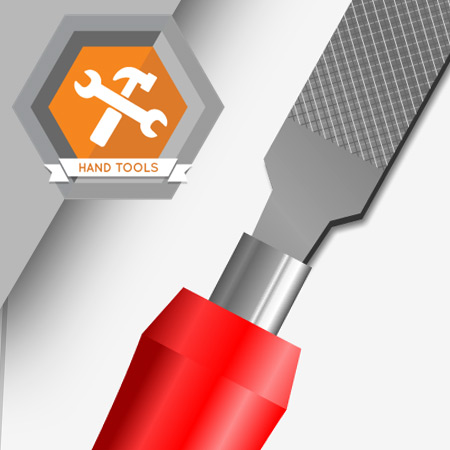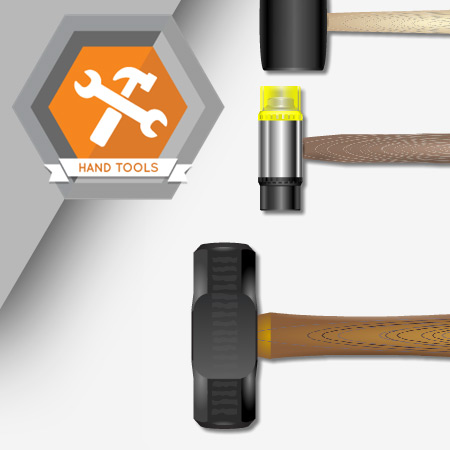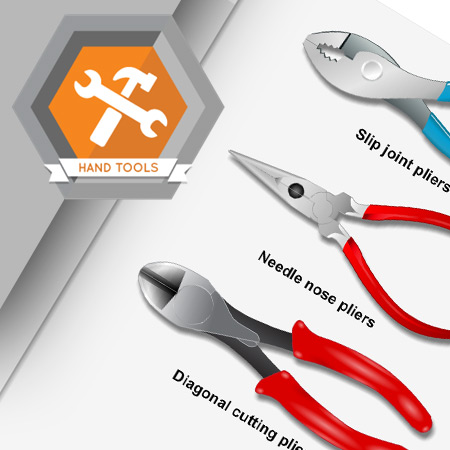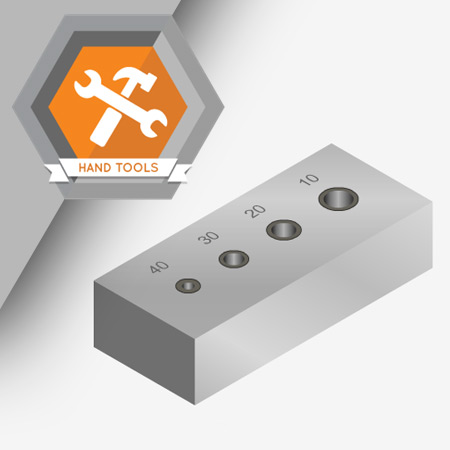
Files, hand reamers, and lapping tools are used to shape materials. The shapes created with these tools include flat surfaces, curved surfaces, and precision holes. Each tool requires knowledge of the tool and its use to make products that meet the requirements of an engineering drawing.
Estimated completion time (hours): 1.2
Objectives
By the end of this course, you will be able to do the following:
- Explain the purpose and function of a file
- Identify the major components of a file
- List the most common types of files
- Define and describe the purpose of a hand reamer
- Discuss the use of an adjustable hand reamer
- Define and describe the purpose of a lapping tool
- Describe the purpose of lapping compounds
Estimated Time (Hrs): 1.2
Language: English

When creating tooling, a toolmaker must sometimes assemble component parts. When doing this, the toolmaker will often use hammers, punches, and chisels of various types.
Estimated completion time (hours): 0.9
Objectives
By the end of this course, you will be able to do the following:
- Describe the purpose and function of a hammer
- Identify the different types of hammers commonly used in tool making
- Describe the purpose and function of a mallet
- Identify the different types of mallets commonly used in tool making
- Describe the purpose and function of a punch
- List the types of punches commonly used in tool making
- Describe the purpose and function of a chisel
- Identify the different types of chisels commonly used in tool making
Estimated Time (Hrs): 0.9
Language: English

When creating fixtures, jigs, and other tooling, toolmakers use a variety of pliers and ratchets. These tools are used to secure, hold, or assemble work pieces either permanently or temporarily.
Estimated completion time (hours): 0.8
Objectives
By the end of this course, you will be able to do the following:
- Describe the use of pliers
- List the types of pliers commonly used by toolmakers
- Describe the use of a ratchet wrench
- State the method for switching between tightening and loosening on a ratchet wrench
Estimated Time (Hrs): 0.8
Language: English

An important part of creating tooling is defining patterns and the locations of holes for cutting and drilling. Toolmakers use optical center finders and scribes in combination with templates when laying out tooling and drill blocks to ensure holes are drilled correctly.
Estimated completion time (hours): 0.8
Objectives
By the end of this course, you will be able to do the following:
- State the purpose of layout dye
- Describe how layout dye is removed after machining
- Explain the use of scribing tools
- Describe the purpose of an optical center finder
- Describe the purpose of a drill block
Estimated Time (Hrs): 0.8
Language: English
